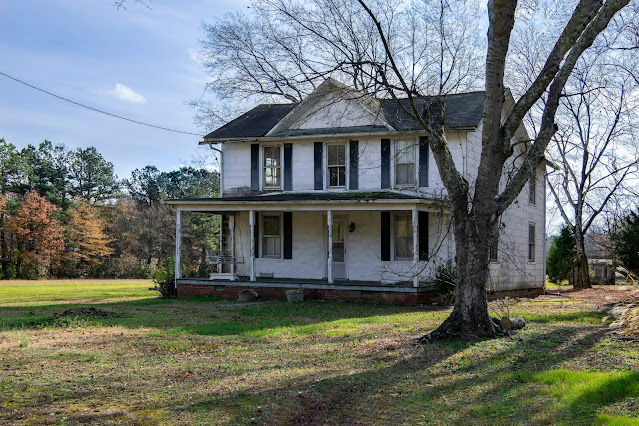Can I Get Insurance for Old Homes? A Complete Guide
Owning an old home comes with charm, history, and unique character. However, insuring an older property can be more complicated compared to newer homes. Many insurance companies view older homes as a higher risk due to outdated plumbing, electrical systems, or structural issues. But don’t worry – getting insurance for old homes is possible!
This article will walk you through everything you need to know about insuring an old home. We’ll cover how to find coverage, what to expect in terms of premiums, and how to overcome potential challenges. Let’s dive in!
Why Insuring Old Homes Can Be Tricky
Structural Concerns in Older Homes
One of the biggest hurdles in getting insurance for old homes is the structural integrity of the house. Many older homes may have aging roofs, foundations, or walls that pose a higher risk of damage. Insurers tend to be cautious when these elements are outdated.
Outdated Plumbing and Electrical Systems
Another factor is the condition of plumbing and electrical systems. Homes built several decades ago may have old wiring or lead pipes, which can increase the likelihood of fire or water damage, resulting in higher premiums or difficulty finding coverage.
How to Get Insurance for Old Homes
Find Specialized Insurers
Some insurance companies specialize in providing coverage for older homes. These insurers are more familiar with the risks associated with aging properties and may offer customized policies. It’s essential to research and compare quotes from these specialized providers.
Upgrade Your Home’s Systems
Upgrading outdated electrical, plumbing, and heating systems can reduce your insurance premiums. Insurance companies are more likely to offer competitive rates if your home has modern, safe systems that meet current building codes.
What Types of Insurance Cover Old Homes?
Standard Homeowners Insurance
In some cases, you may still be able to secure standard homeowners insurance for your old home. This policy typically covers dwelling protection, personal property, and liability. However, the cost may be higher due to the added risk.
Historic Home Insurance
If your old home is classified as historic, you may need historic home insurance. This type of policy is designed to protect homes that require restoration or maintenance in compliance with historical preservation guidelines. It can help cover costs for using specialized materials to maintain the home’s historic integrity.
Table: Comparing Insurance Options for Old Homes
| Type of Insurance | Coverage | Best For | Average Premium |
|---|---|---|---|
| Standard Homeowners Insurance | Dwelling, personal property, liability | Homes with minor upgrades | $1,200 – $3,000 annually |
| Historic Home Insurance | Restoration costs, preservation | Homes classified as historic | $2,000 – $5,000 annually |
| HO-8 Policy | Basic dwelling, personal property, liability | Older homes with high risk | $1,000 – $2,500 annually |
FAQs About Insuring Old Homes
1. Can I get insurance for a 100-year-old home?
Yes, you can get insurance for a home that is 100 years old, but it may come with higher premiums or require certain updates to be eligible for coverage.
2. How can I lower my insurance premiums for an old home?
Upgrading outdated systems, installing modern safety features, and shopping around for specialized insurers can help lower your insurance premiums.
3. What is an HO-8 policy?
An HO-8 policy is a type of insurance designed for older homes that may not qualify for standard homeowners insurance. It provides more basic coverage, which may be necessary for homes with high repair or restoration costs.
4. What does historic home insurance cover?
Historic home insurance covers the costs of restoring or repairing a historic home using materials and methods that maintain its historical integrity. This may be required by preservation boards or local laws.
5. Does homeowners insurance cover upgrades to old homes?
No, homeowners insurance generally does not cover the cost of upgrading old systems. However, it can cover damage caused by these systems, such as water damage from a broken pipe.
6. What happens if my home is uninsurable due to its age?
If your home is considered uninsurable, you may need to invest in upgrades to make it eligible for coverage or look for specialty insurers that provide policies for high-risk homes.
7. Does age of the home affect insurance rates?
Yes, the age of the home significantly affects insurance rates. Older homes typically have higher premiums due to increased risk factors like outdated infrastructure and materials.
8. Are there any government programs for insuring old homes?
Some states offer programs or incentives for homeowners of historic or older homes, but these vary by location. Check with your state’s insurance department for details.
9. How do I find an insurance company that covers old homes?
Look for insurance companies that specialize in insuring older properties or historic homes. These insurers are more likely to provide coverage tailored to the unique needs of older homes.
10. Will my premium go down if I renovate my old home?
Renovating key systems such as plumbing, electrical, and roofing can reduce your premium. Always inform your insurance provider of any major upgrades to get a potential discount.
Conclusion
Getting insurance for an old home is possible, but it can come with unique challenges. By understanding the risks associated with older homes and exploring specialized insurance options, you can protect your property while controlling costs. Remember, updating key systems and comparing quotes from different providers are essential steps to ensure you’re getting the best deal on your old home insurance.
If you’re looking for more information on home insurance options, be sure to explore our related articles on homeowners insurance, coverage types, and saving on premiums.


